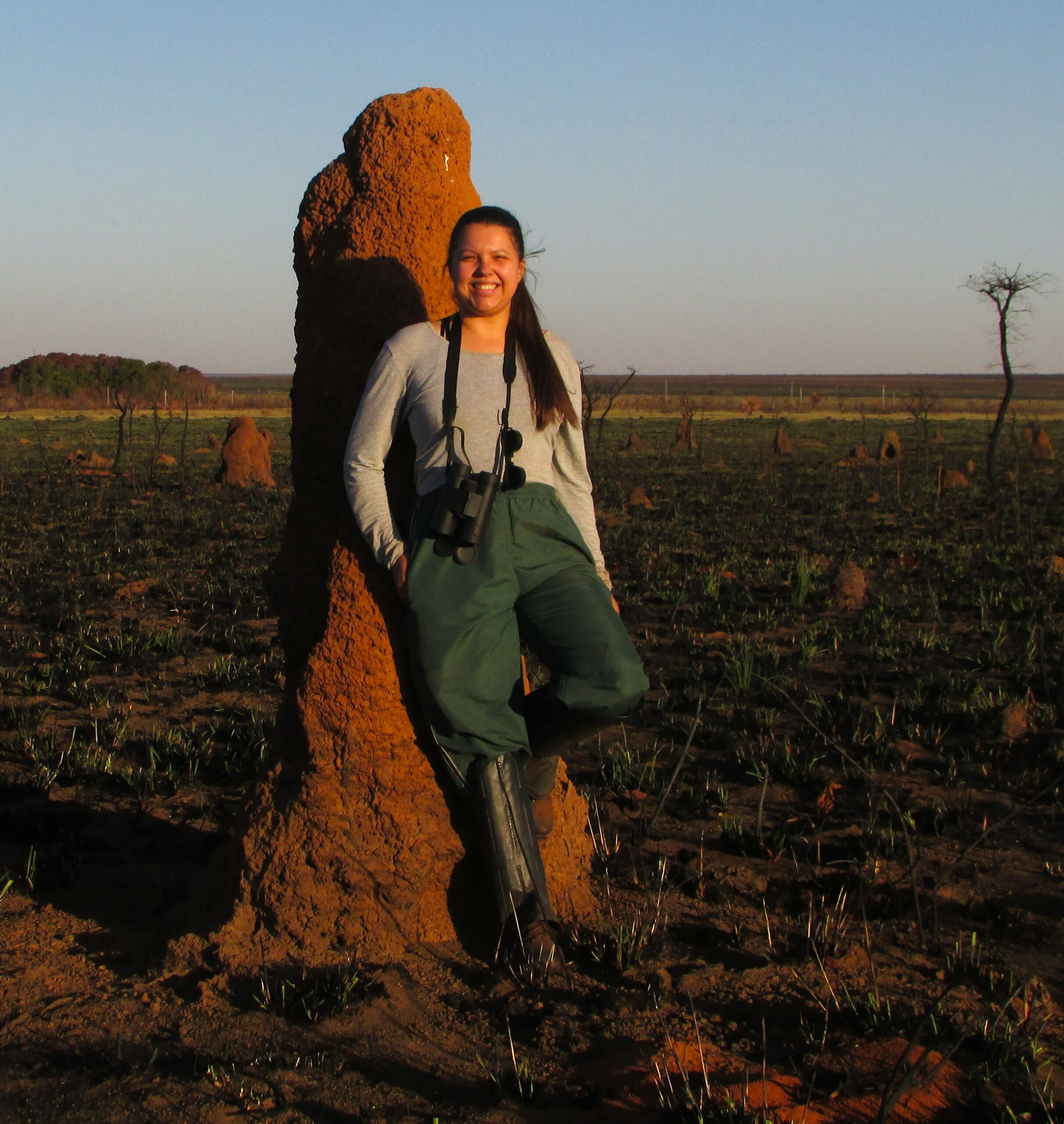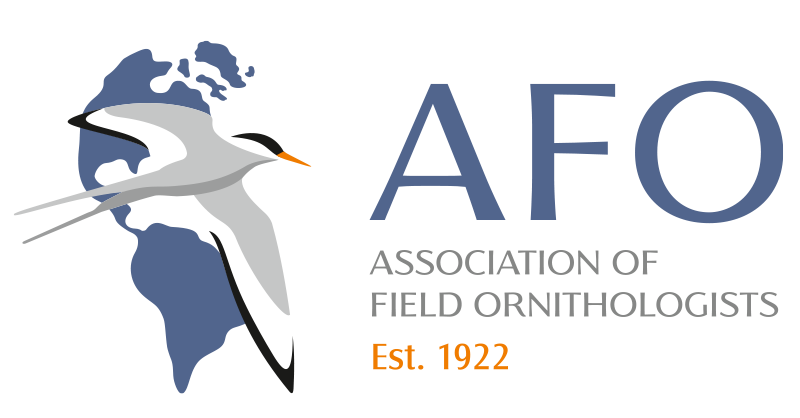
This grant is supported by a fund that was established by Dr. and Mrs. Skutch following the joint meeting of the Association of Field Ornithologists, Asociacion Ornitologica de Costa Rica, and the American Birding Association in San Jose, Costa Rica, in 1997. At that meeting, Dr. Skutch was honored by AFO for more than sixty years of contributions to Neotropical ornithology.
Dr. Skutch is known for his hundreds of scientific papers and more than forty books, which focused on the behavior and life histories of birds. His intention in establishing the Skutch Fund was to support the kind of research to which he devoted his life, and especially, to encourage studies by people who live in the Neotropics.
Typically one or two grants of up to $15,000 are awarded annually.
Purpose
The Pamela and Alexander F. Skutch Keystone Grants promote question-driven research and other projects that add to our knowledge of the natural history, ecology, and/or conservation of birds living under natural conditions in Mexico, Central America, South America, and the Caribbean.
Eligibility
Skutch Keystone grants support research being done by individuals who are based in Mexico, Central America, South America, or the Caribbean. The research must also be focused on birds that live some or all the year in this same geographical area. Students pursuing either a Masters degree or a Ph.D. are welcome to apply for a grant, as are Post-doctoral Fellows, established professionals, and individuals working outside of academia.
The applicant and/or their research supervisor (in the case of students) must be a member of the AFO at the time of application. To become a member, please visit https://afo.wildapricot.org/join-us.
For information on what types of research that Skutch Keystone Grants can fund, including allowable methodology, please see the AFO Research Guidelines before considering an application.
Reporting and Dissemination of Results
Awardees are encouraged to present the results of their work at an annual conference of the AFO or a joint meeting in which the AFO is participating (e.g., the Ornithological Congress of the Americas). Some additional funding may be available to support grantee travel to the conference.
Awardees are also strongly encouraged to consider publishing at least some of their findings in AFO’s Journal of Field Ornithology. Supplemental funding likely will be available to cover some or all publishing costs.
Research Supplies
Awardees may wish to consider using some of their funding to purchase mist nets and other supplies used in ornithological research from the AFO. A list of supplies available can be found at Avinet Research Supplies.
Application
Please note, the AFO Grant Programs were restructured and expanded in 2024 to make more funds available to researchers, as well as honor the wishes of those who established the grant endowments. Application instructions for the restructured program are posted below.
The application deadline is July 1, 2025. Applications may be submitted in English, Spanish, or Portuguese.
Please direct all questions to Judit Ungvári (jungvari@gmail.com).
Previous Grant Recipients




2024: Valeria Ojeda – Conservation insights from juvenile Magellanic Woodpecker (Campephilus magellanicus) dispersal.
2024: Sabrina Wust – Breeding biology and ecology of the White-rumped Monjita (Xolmis velatus) in cavities of termite mounds in the Cerrado region.
2023: Tatjiana Washington – Avian nests in the face of climate change
2023: Lisandro Moran – Entendiendo el comportamiento alimenticio y requerimientos de hábitat del Cardenalito de Venezuela (Spinus cucullatus). Understanding the feeding behavior and habitat requirements of Spinus cucullatus.
2022: Tobias Nicolas Rojas – Cambios en la dieta de aves frugívoras en un gradiente de disturbio: entendiendo procesos para conserver funciones (Changes in the diet of frugivorous birds across a disturbance gradient: understanding processes to conserve functions)
2021: Esther Vallejo – Autumn raptor migration monitoring and conservation initiative in central Colombia
2020: Santiago David Rivera, University of British Columbia – Life-history traits and breeding strategies of tropical high elevation species in the Eastern Andes of Colombia
2019: Greg Davies, Marsupialism, nesting biology, and spatial deployment in the Sungrebe Heliornis fulica (Aves: Gruiformes: Heliornithidae). You can read more about Greg’s work on our blog.
2018: Sergio Chaparro-Herrera, Ecología y conservación del Gorrión-Montes Paisa (Atlapetes blancae) en el norte de Antioquia-Colombia
2018: Sandra Cuadros, Distribution update, habitat use and conservation status assessment of the Grey-bellied Comet (Taphrolesbia griseiventris)
2017: Felicity Newell, Peru, In Search of ‘Tropical Spring’: Does Variation in Tropical Montane Microclimate Shift Breeding Seasons Through Rainfall-Induced Increases in Food Abundance?
2016: Nils Navarro, Cuba to search for the Cuban endemic Zapata Rail
2015: Renata Biancalana, Brazil to study cypseloidine swifts
2014: Dr. Rodrigo W. Soria Auza, Bolivia, to study habitat availability and reproductive biology of the Palkachupa Cotinga to assess its conservation status and guide habitat restoration efforts
2013: Pablo Toledo-Monsonis, Estudio del Estatus Actual y Éxito Reproductivo de La Colonia de Garza Agami (Agamia agami) Del Lago Cocococha, Reserva Nacional de Tambopata, Perú
2012: Roni Martinez, Belize, to study the Breeding Biology of the Enigmatic Solitary Eagle Harpyhaliaetus solitarius.
2011: Sergio Nolazco, Peru, for a study entitled: Aspectos ecológicos y biológicos de la especie endémica y en peligro cortarrama peruana (Phytotoma raimondii) (Peruvian Plantcutter): información crucial para su conservación.
2010: Gustavo Londono, Peru, for a study entitled: How does avian nesting behavior change along an Andean altitudinal gradient?
2009: Noemi Esther Huanca Llanos, Breeding biology and habitat use of the endangered endemic Cochabamba Mountain-finch (Poospiza garleppi); Biología reproductiva y uso de hábitat de la endémica y en peligro Cochabamba Mountain Finch (Poospiza garleppi)
2008: Juan Ignacio Areta, Argentina, for a study entitled: Aves especialistas en semillas de bambú: historia natural de Claravis godefrida, Sporophila falcirostris, Sporophila frontalis y Tiaris fuliginosus durante una floración de la Takuarusu (Guadua chacoensis)
2007: Mieko Kanegae, Brazil, to study Habitat use and population size of endemic and threatened birds of Cerrado in the Ecological Station of Itirapina, Southeastern Brazil.
2007: Sandra V. Valderrama, Colombia, to study the Natural History and Landscape Influence on Vocal Variation of a Critically Endangered Songbird, Niceforo’s Wren (Thryothorus nicefori)
2006: Ursula Valdez, Peru, to study Ecology of forest-falcons (Micrastur) in Amazonian rainforest of southeast Peru
2005: Harold Greeney, Ecuador, to study the behavior and reproductive biology of little known montane passerines in eastern Ecuador
2004: Carlos Humberto Pereira de Oliveira, Brazil, to study the behavior and reproductive biology of the Restinga Antwren (Formicivora littoralis)
2003: Sandra Victoria Rojas Nossa, Universidad Nacional de Colombia, to study the ecology of a community of Andean Flowerpiercers (Diglossa and Diglossopis)
2002: Juan Diaz Alvan, Peru, to study the behavior of the recently described Antwren (Percnostola arenarum)
